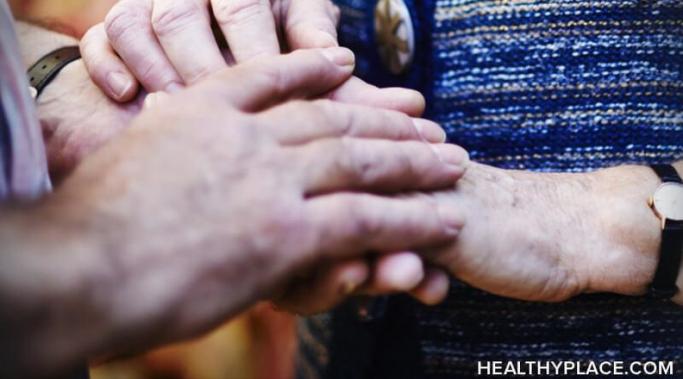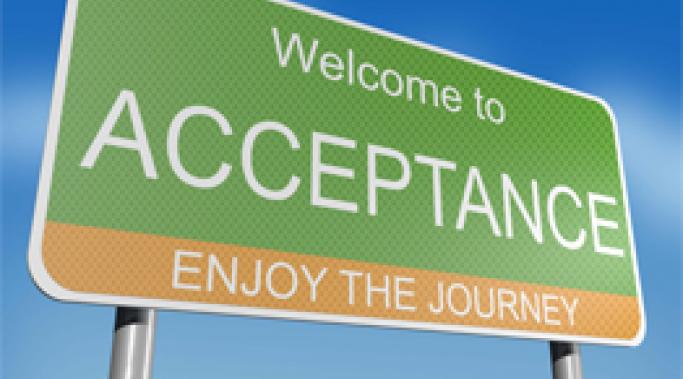Those of us in mental health recovery are often faced with the hardships our symptoms can cause us. It can be easy to get discouraged, to look at our progress in recovery and tell ourselves, “I’m never going to overcome this mental illness.”
Coping Skills
Coping with symptoms of mental illness can be a daily struggle for the mentally ill. Each person develops his or her own strategies to cope with these painful experiences. These strategies can be as unique to each person as you can make them. What works for you to battle your mental illness symptoms might not work for me, and vice versa.
We learn these coping strategies over time in the crucible of our illness and the ways in which we gain insight into our symptoms and how they uniquely affect us. That’s why it’s not very helpful to say to a mentally ill person struggling with their symptoms, “Just do this,” or “Just do that.”
In 2010, I worked as a peer support specialist for a mental health organization in my community. Having been on the job for just over a year, I was feeling fulfilled and proud of myself for what I’d accomplished. Most importantly, I was making a difference to other people who suffered from mental illness. My colleagues were happy with my work and made it a point of telling me so.
So imagine my surprise when I was called into the boss’s office one day. She looked at me and said, “Mike, you are decompensating.” I didn’t even know what that meant.
Last week brought me a lesson in the need to be prepared when mental health triggers come, as they inevitably do in our recovery. These triggers can be dangerous because they can instantly transport us to a place of emotional turmoil and intensify our symptoms. In order to manage our illness, we must be prepared at all times. We never know when we can be triggered and we need to take steps to ensure we and others around us are safe.
This past week, there was a national firestorm with the release of American POW Bowe Bergdahl from captivity in Afghanistan. I had not known the story prior to this, but when I heard the circumstances of his experience, I was triggered in a way that hasn’t happened in a long time.
The source of much of our discomfort lies in what we find unacceptable. I’m heartbroken because I don’t want to accept that person I loved is gone forever. I’m anxious because I don’t want to accept that I might actually be safe, that no one is trying to purposely hurt me. I’m sad because I have difficulty accepting that there are actually good and lovely things in this world, as well as the bad things. I don’t want to accept that I need to be on this medication now, and maybe for life. All these things, and many more, I find unacceptable.
One of the casualties of mental illness is often any kind of healthy social interaction. If we aren't careful, we can end up in a vortex of loneliness that serves only to make us feel worse about our mental health and cause our condition to deteriorate. Why do we, as people with mental illness, isolate ourselves?
Grief is a curious thing; especially when the mourner has a mental illness. My mother died a month ago today from a combination of COPD, heart failure, diabetes, brain and bone cancer. Her breast cancer had metastasized to every organ in her body. I found out via my aunt 5 days after her death. I wish that I could say that I was surprised, but my mother had chosen a hard life for years. The surprise was how quickly she died after the brain cancer diagnosis. She was diagnosed in May and given a year to live; she was dead in less than 3 months. My mother and I had what could best be described as an awkward relationship: abandonment as an infant, a lengthy court battle before my grandparents got guardianship and very limited contact throughout my life.
I had a tough year. I typically have a lower mood once October kicks me in the ass, but this year was worse. I watched seven seasons of Lost in one month--granted I had never seen it before. But still! I even went as far as to abandon writing this blog. I was not thinking clearly. Writing this blog is an important part of my life.
As usual, you are probably wondering where I am going again. Yes, the woman who wrote a memoir on mental illness and addiction should perhaps stop talking about her own misery. But this morning--back on my feet again--I remembered that time and the words "solitary confinement" came to mind.







